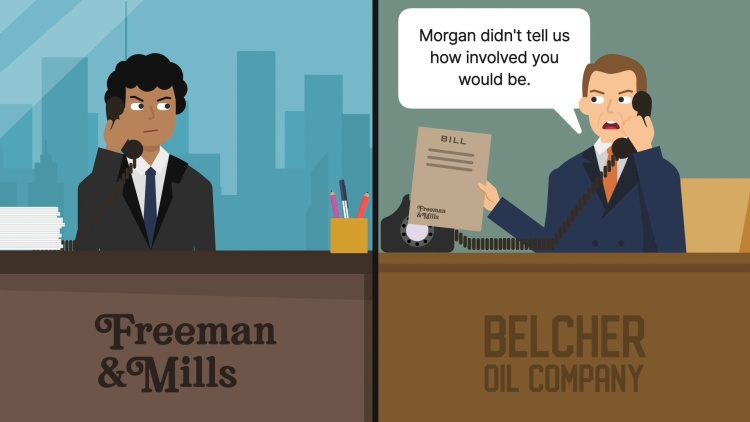Freeman & Mills, Inc. v. Belcher Oil Company
California Supreme Court
900 P.2d 669, 11 Cal. 4th 85, 44 Cal. Rptr. 2d 420 (1995)

- Written by Sean Carroll, JD
Facts
Belcher Oil Company (Belcher) (defendant) hired the law firm Morgan, Lewis & Bockius (Morgan) to defend it in a lawsuit. Belcher and Morgan entered into a contract providing that Belcher would pay for costs incurred by Morgan on its behalf in the suit, including accountants’ fees. In turn, Morgan hired Freeman & Mills, Inc. (Freeman) (plaintiff) to provide accounting services on Belcher’s behalf. Subsequently, Belcher’s new general counsel became dissatisfied with Morgan’s work, fired the firm, and told the firm to have Freeman stop working on the suit. Freeman stopped working and sent a bill to both Morgan and Belcher that went unpaid. Belcher claimed that it had not been consulted by Morgan on the extent of Freeman’s work and therefore that Freeman should look to Morgan to obtain its compensation. Freeman eventually brought suit against Belcher for bad-faith denial of the contract between Belcher and Morgan. A jury found that Belcher did deny the contract in bad faith, and the trial court entered judgment in favor of Freeman. The appellate court reversed. The California Supreme Court granted review to analyze its confusing and often criticized holding in Seaman’s Direct Buying Service, Inc. v. Standard Oil Co., which established the tort of bad-faith denial of a contract.
Rule of Law
Issue
Holding and Reasoning (Lucas, C.J.)
Concurrence/Dissent (Mosk, J.)
What to do next…
Here's why 907,000 law students have relied on our case briefs:
- Written by law professors and practitioners, not other law students. 47,100 briefs, keyed to 996 casebooks. Top-notch customer support.
- The right amount of information, includes the facts, issues, rule of law, holding and reasoning, and any concurrences and dissents.
- Access in your classes, works on your mobile and tablet. Massive library of related video lessons and high quality multiple-choice questions.
- Easy to use, uniform format for every case brief. Written in plain English, not in legalese. Our briefs summarize and simplify; they don’t just repeat the court’s language.





